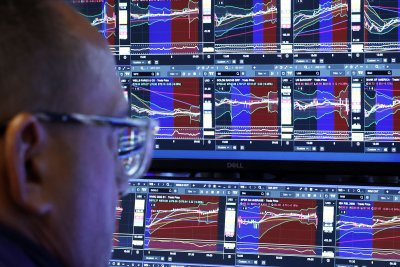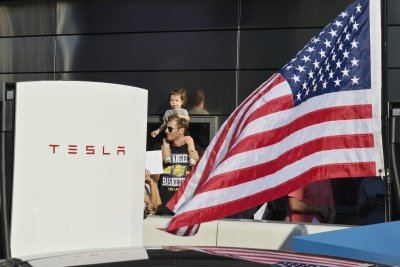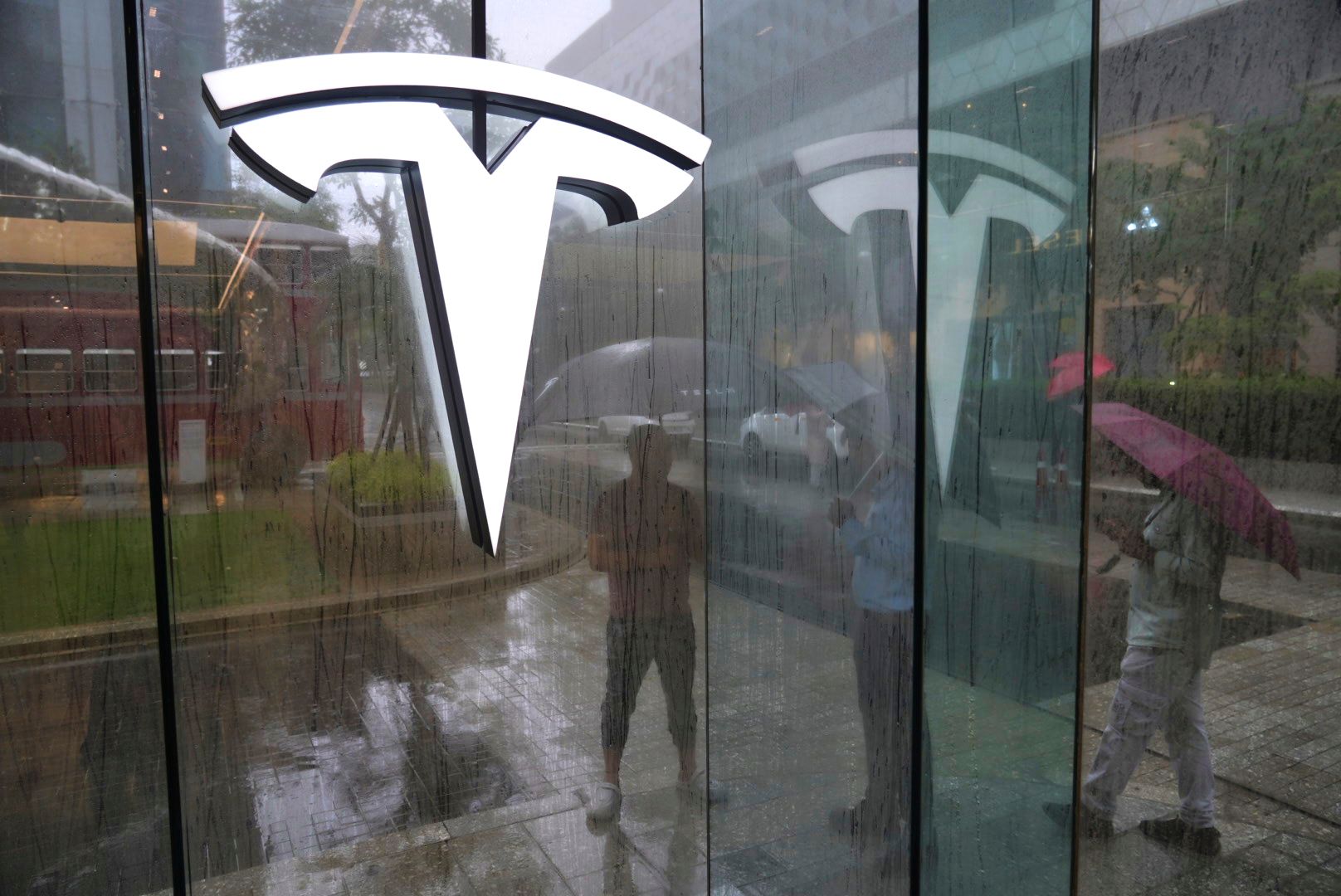July 24 (UPI) — Tesla’s shares price declined 1.74% for the week on Friday, two days after posting declining profits for a third straight quarter amid increased competition and a pending loss of federal tax credits.
On Friday, the stock price closed at $316.06, up $10.76, or 3.52%, from the day before, when the stock slumped 8.2%. Its market capitalization slumped to $984.73 billion. Tesla earnings report was released after the market closed on Wednesday.
Tesla is down 16.7% year to date but up 43.5% from one year ago, according to NASDAQ.
Tesla’s price was as low as $284.70 on June 5 when Elon Musk’s feud with President Donald Trump intensified and $221.85 on April 8 when stock indexes and bond market were tumbling before Trump announced a pause on harsh tariffs on trading partners.
The company’s stock price reached a record of 479.86 on Dec. 17 before Trump entered the White House as president again on Jan. 20. Tesla first began trading on June 29, 2010, with an initial price offering of $17 but opened trading at $19 per share.
Back then the only car for sale was the Roadster and two years before the Model S hit the market. The top-selling cars are now the Model Y SUV and Model 3 sedan.
Musk wasn’t Tesla founder but he invested early and served as chairman and took over as CEO in 2008.
The conference call Thursdsay was light in earnings information and more focused on robotics and artificial intelligence.
“The company offered remarkably little detail on some of the most important factors” – like its mysterious new lower-priced model – “making our outlook lean more on imagination than realistic targets,” Truist’s William Stein, who has a hold rating on Tesla, said in a note after the call in a report by CNN.
“I wouldn’t say it was a conference call that should be put in the Hall of Fame,” Dan Ives of Wdbush Securities, told CNN on Thursday, but said he is still bullish on Tesla’s robotics future with Musk in charge. “Communication on the call was less than stellar in terms of details, and I think that definitely played into the selloff that we’re seeing.”
Tesla later told staff Thursday it plans to launch its Robotaxi service in San Francisco this weekend, according to an internal memo obtained by Business Insider. Tesla has a permit for testing its self-driving software in California with a driver behind the wheel.
Earning report
Looking back, Tesla sold $22.5 billion worth of products during the second quarter, which is $3 billion less than the $25.5 billion in sales during the same period in 2024.
Tesla reported $1.2 billion in earnings profit from April to June, which is down from $1.4 billion a year earlier.
The earnings drop is the third straight quarter for the EV maker that last reported an earnings gain during the third quarter last year.
Driving much of the loss is a decline in Tesla vehicle sales, which totaled $16.7 billion during the second quarter — down by 16% from a year ago.
Tesla delivered 384,000 vehicles during the second quarter, which is 14% fewer than a year ago, the company announced in July.
Several factors have contributed to the decline in Tesla sales, including the end to federal tax credits for buying electric vehicles and increased competition for EV makers in China and elsewhere.
Musk recently cautioned investors about the approach of a “few rough quarters” due to the loss of the federal EV tax credits.
A recently signed budget bill that Trump dubbed “one big, beautiful bill” eliminates a $7,500 federal tax credit after September.
Trump said he does not intend to eliminate federal subsidies for Tesla, though.
“I want Elon and all businesses within our country to thrive … like never before,” Trump said in a Truth Social post on Thursday.
“The better they do, the better the USA does, and that’s good for all of us,” Trump added.
Tesla also posted a decline in new vehicle registrations in Europe in July and only sold 4,300 units of its Cybertruck during the second quarter.
Tesla sold about half as many Cybertrucks during the second quarter than it did a year earlier, according to Cox Automotive.
Musk has announced Tesla will soon offer a new EV that costs less after beginning production in June.
Industry analysts anticipate it will be similar to Tesla’s electric Model Y SUV.
Tesla’s declining EV sales come as demand for EVs has grown by 1.5% so far in 2025 in the United States and by 32% and 26%, respectively, in China and Europe, Cox Automotive and Rho Motion reported.
China’s BYD EV maker is growing its market share there, while JATO Dynamics reported Volkswagen has overtaken Tesla as the top EV seller in Europe.
Recent political turmoil also has led to negative publicity for Musk and Tesla by extension.
Musk’s recently controversial activities as the former director of the Department of Government Efficiency, subsequent fallout with Trump and recent announcement of founding a third political party have preceded declines in sales and Tesla’s share price.




